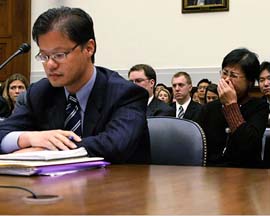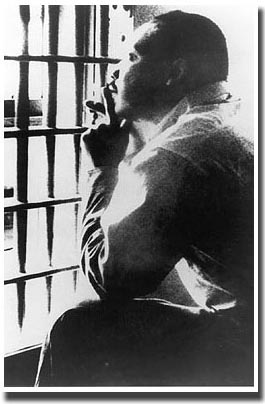 Tiger Woods November 2009 auto crash that nearly scuttled the golfer's career may send another career spiraling out of control.
Tiger Woods November 2009 auto crash that nearly scuttled the golfer's career may send another career spiraling out of control.
2007 freshmen make us feel old
 This year's crop of 18-year-old college freshmen were born after the end of the Cold War and not long after the fall of Berlin Wall.
This year's crop of 18-year-old college freshmen were born after the end of the Cold War and not long after the fall of Berlin Wall.
To many of the students, Pete Rose has never played professional baseball during their lives. Mass murderer Ted Bundy has always been dead.
One man honors another
 HIAWATHA, Ia. - LuAnn and I attended the home town parade for Staff Sgt. Salvatore Giunta. It was a cold evening but something that we just couldn't miss, an Iowa hero. We found a lit up street corner and waited for something unexpected.
HIAWATHA, Ia. - LuAnn and I attended the home town parade for Staff Sgt. Salvatore Giunta. It was a cold evening but something that we just couldn't miss, an Iowa hero. We found a lit up street corner and waited for something unexpected.
The war of words lists
The word list and links to other word lists:
Nominate your own words for the list here.
Do you Yahoo? I don't!
 It was a pitiful scene. Jerry Yang, co-chairman of Yahoo, was being hammered before the U.S. House Committe on Foreign Affairs.
It was a pitiful scene. Jerry Yang, co-chairman of Yahoo, was being hammered before the U.S. House Committe on Foreign Affairs.
King's letter from Birmingham jail
 Letter from Birmingham City Jail, is an open letter written on April 16, 1963 by civil right leader Martin Luther King Jr. King wrote the letter from the city jail in Birmingham, Ala., after a peaceful protest against segregation. His letter responds to a statement made by eight white Alabama clergymen on April 12, 1963 titled A Call For Unity.
Letter from Birmingham City Jail, is an open letter written on April 16, 1963 by civil right leader Martin Luther King Jr. King wrote the letter from the city jail in Birmingham, Ala., after a peaceful protest against segregation. His letter responds to a statement made by eight white Alabama clergymen on April 12, 1963 titled A Call For Unity.
We call it the ethics stimulus package
 The names all sound familiar.
The names all sound familiar.
Rod Blagojevich, John Edwards, Elliot Spitzer, Ted Stephens, Alberto Gonzales, Karl Rove, Lewis Libby, Dick Cheney, Tom DeLay, Jack Abramoff, William Jefferson, Jack Abramoff, Bill Clinton and William Jefferson.
The war of words
Lake Superior University lists the words in the "List of Words to Be Banished from the Queen’s English for Mis-use, Over-use and General Uselessness." The Oxford phrases are listed in a new book, Damp Squid: The English Language Laid Bare
The face of U.S. newspapers
 The Davidson family owned The Daytona Beach News-Journal in Daytona Beach, Florida, when I worked there in the early 1990s. The newspaper's masthead included the name of the editor of the family's defunct afternoon newspaper, the Evening News. The man would come to work every day, go to his office, and close the door behind him. Like everyone else on staff, he presumably was paid a salary; and, as editor of a newspaper -- regardless of whether it existed or not -- he was probably paid more than the reporters and lower-level editors.
The Davidson family owned The Daytona Beach News-Journal in Daytona Beach, Florida, when I worked there in the early 1990s. The newspaper's masthead included the name of the editor of the family's defunct afternoon newspaper, the Evening News. The man would come to work every day, go to his office, and close the door behind him. Like everyone else on staff, he presumably was paid a salary; and, as editor of a newspaper -- regardless of whether it existed or not -- he was probably paid more than the reporters and lower-level editors.
A call for unity
A Call For Unity is a letter written on April 12, 1963 by eight white clergymen from Birmingham, Ala. They urged an end to the demonstrations by blacks "directed and led in part by outsiders." They urged blacks to negotiate and use the courts if rights were being denied.
The letter from the clergymen:
We the undersigned clergymen are among those who, in January, issued "an appeal for law and order and common sense," in dealing with racial problems in Alabama. We expressed understanding that honest convictions in racial matters could properly be pursued in the courts, but urged that decisions of those courts should in the meantime be peacefully obeyed.


